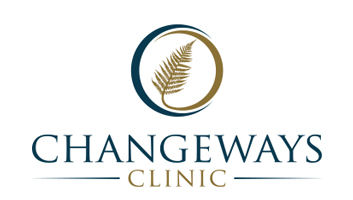
Emerging Adulthood
Life is made up of transitions. One of the most difficult to manage in modern society is the leap from adolescence to adulthood - from dependence on the support of family and others to a greater degree of independence, self-support, and self-determination. Worldwide, enormous numbers of young adults are having difficulty at this shift from one way of living to another. The reasons are many:
- Widening income disparity.
- Low starting wages in terms of real buying power.
- Greater costs associated with educational programs.
- High accommodation costs.
- An increased emphasis on extreme definitions of success.
- Internet use patterns that reduce time for real-world achievements.
- An emphasis on "finding your passion," which many youth find paralyzing.
- Social media promoting downward comparisons with self.
- Overdiagnosis and self-diagnosis of personality features as mental disorders.
The degree to which any of us seizes control of our lives and charges into adulthood is a continuum, not a light switch. It's not a yes-or-no proposition. But when life stagnates at the gap, or begins to move backward toward increasing isolation/inactivity/withdrawal/stagnation, counselling can help restart the process.
Here are some of the terms commonly used to describe this situation. Note that at Changeways Clinic we aren't entirely thrilled with any of them, and prefer to see our clients as individuals rather than categories.
- Hikikomori. A Japanese term for a particularly intense form of extreme social withdrawal.
- NEET. A term, originally British: Not in Education Employment or Training, describing a young person (usually).
- ESW. Extreme social withdrawal - a common feature of this situation, in which a young adult may avoid friends, neighbours, even family - and may spend much of his/her time in a single room.
- Failure to Launch. A problematic term that puts that word "failure" front-and-centre despite really this situation being more of a delay than a failure.
At Changeways Clinic we provide counselling services for young adults and families to help them through this difficult transition.
If the young adult (YA) is the primary client, we work to develop a vision of adulthood that he or she wants - not the one that society or family necessarily prefers - and help the YA identify the steps toward those goals. This might involve skill development (assertiveness, interviewing, study skills, driving, cooking), exposure therapy for fear reduction (transit, being outdoors, social settings, independent travel, evaluation by others), reworking family functioning (e.g., shifting from supports for dependence into significantly increased supports for independence - rather than simply "cutting off" of supports), developing social networks (meeting people, negotiating interpersonal challenges, finding social settings that suit one's personality), educational development (becoming accustomed to instructional settings, identifying barriers and opportunities, supporting interim goals rather than focusing on final achievements), and vocational development (resume-building, identifying talents and career goals, mapping the path toward those goals, finding volunteer or entry opportunities), and so on. Every young adult is different, and so the set of activities and goals for therapy varies enormously from person to person, and is designed mainly by the YA him or herself.
We also see parents as primary clients - either singly or as a couple. We help to identify their own roles in the family interaction, and how they may be able to shift their support from dependence to independence. We work with the common temptation to over-accelerate the independence process (suddenly cutting off support or ejecting the YA from the home) in a way that usually makes things worse rather than better. We find ways to continue and enhance the relationship without overcompensating for the delays or undermining eventual independence. We recommend strategies to overcome the high level of conflict that is often (though not always!) present in these families, normalizing frustrations but helping to channel these into productive change.
Whether the supporter(s) or the YA is the client, we will usually work to include others if and as needed, and if our primary client wishes to do so.
To inquire about our services, just get in touch:
Phone: 604 871 0490. Fax: 604 871 0495. Email: clientservices@changeways.com. In most instances we are able to respond to messages within one to two business days.
